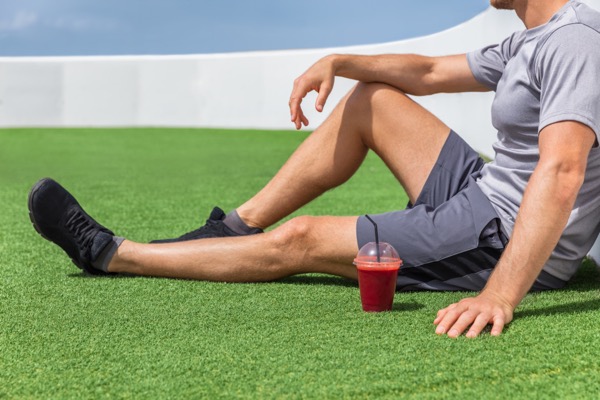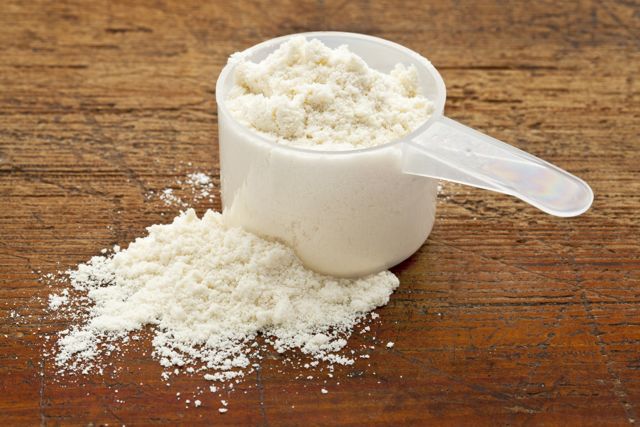How to Maximise Your Post-Workout Recovery
Want to improve muscle recovery, improve performance and build muscle faster? Recovery is one of the most important elements in any training programme
Training does not stop once you have left the gym. If you want to get the most out of any workout or training session you need to focus on your recovery post workout. Even if you are not experiencing muscle soreness what you do after a workout is still important. When you train– whether you are undertaking resistance training or cardio you put your body and muscles under a lot of stress. High intensity exercise impacts the whole body – joints, muscles, digestion, glycogen stores, nervous and endocrine systems, immune response and cellular health. Poor recovery over time can result in systemic inflammation that impact the whole body and performance.
What and when you eat together with lifestyle factors can all impact speed of recovery. Recover better and you will notice improvements in performance.
Getting The Macros & Calories Right
While your recovery meal is important many people just focus on this alone without understanding that what they eat throughout the day will impact recovery and performance. Eating insufficient calories will impact your body’s ability to recover and refuel ready for the next training session. Not eating enough will also affect muscle repair and muscle growth. This is important for both weight training and endurance sports.
Protein
The balance of your meals is just as important. When it comes to muscle recovery protein is of particular importance. Don’t assume this is only for those wishing to build muscle in the gym either. Endurance athletes equally need sufficient protein. Training stresses muscle tissue. Protein is required to support muscle repair enabling them to grow stronger. While there is much debate about how much protein athletes need: it will also vary depending on the amount and type of training undertaken. Typically for endurance training it is suggested that between 1.4-1.8g per kg of body weight is required. Bodybuilders may find a higher intake (2g per kg ) achieves better gains.

Carbohydrates
Glycogen is stored in the muscles and liver and is the primary source of fuel during intense exercise. Restrict your carbs too much and your glycogen stores will fall inhibiting post workout muscle recovery. Restrict your carbohydrate too much and cortisol will increase – this can have a catabolic effect which may adversely affect muscle recovery post exercise. The rate at which your glycogen stores are used depends on the activity. For example, endurance sports cause your body to use more glycogen than resistance training. This in turn will influence your overall carbohydrate requirements through the day.
Consuming sufficient carbohydrate immediately post training is important for faster recovery and improvements in muscle growth. Eating plenty of carbs to rebuild glycogen stores is most important for people who exercise often, such as twice in the same day or every day.
What About Fat?
Consuming too much fat can slow down the absorption of your post-workout meal. That doesn’t mean your meal has to contain zero fat – for example one study showed that whole milk was actually more effective at promoting muscle growth after a workout than skimmed milk. However it might be a good idea to limit the amount of fat you eat after exercise to enable you to hit your protein / carb target without consuming excess calories. Some people also find too much fat post workout can make them feel nauseous.
Sleep and Stress
If you’re stressed and not sleeping well your recovery is going to suffer. Much of the rebuilding happens when we sleep. Even one night of bad sleep can affect performance the following day. If you really want to get the most out of your training aim to get 7-8 hours of sleep every night. Training late in the evening can interfere with sleep patterns. This is because raised cortisol levels during exercise can block melatonin – our sleep hormone. Taking phosphatidylserine can be helpful post exercise to lower cortisol levels.

Hydration
One area often neglected is the importance of hydration during and after training. During exercise you will lose both water and electrolytes through sweat. Replenishing them through an electrolyte formula or drinking coconut water can aid recovery and performance.

Post Workout Recovery Meal
When you’re working out, your muscles use up their glycogen stores for fuel. This results in your muscles being partially depleted of glycogen. Some of the proteins in your muscles also get broken down and damaged. Your body’s ability to rebuild glycogen and protein is enhanced after you exercise. Eating a recovery meal ideally within 45 minutes after you exercise will help the body get this done faster. A combination of protein and carbohydrates will decrease muscle protein breakdown, increase muscle protein growth, restore glycogen stores and improve overall recovery. Studies have shown that delaying consumption by 2 hours or more can reduce the amount of glycogen synthesis by as much as 50%.
Consuming adequate amount of protein after a workout gives your body the amino acids it needs to repair and build new muscle tissue. Studies have shown that ingesting 20–40 grams of protein in your recovery meal seems to maximize the body’s ability to recover after exercise. More than this does not appear to result in any additional gain.
Carbohydrates are equally important in your post workout meal. Consuming carbs will help replenish your glycogen stores quickly and aid muscle recovery. Ideally aim for 1.1-1.5g / kg body weight within 30-45 minutes of training. So a combination of protein and carbohydrates is ideal. Insulin secretion which enables glycogen resynthesis is better stimulated when protein and carbs are combined. Similarly consuming carbs and protein after exercise maximises protein synthesis.
Practically consuming carbs and protein in a ratio of 2-3:1 is recommended. For example, 40 grams of protein with 80-120 grams of carbs.
What to Eat
Many people struggle to consume food immediately post exercise. This may be for a variety of reasons. Practically it may be difficult to have the right foods to hand, some people don’t actually feel that hungry while others feel nauseous after a long training session. For this reason many people find a recovery protein shake one of the easiest and effective options.
If you prefer food – here are easy options to try:
Peanut butter and rice cakes
Cottage Cheese with pineapple
Greek yogurt with berries, nuts and seeds
Chicken salad pitta
Scrambled egg on toast
Tuna with oat cakes
Porridge with whey protein and banana
Sweet potato with baked beans

Can Supplements Help?
Food always comes first when it comes to sports performance and recovery but certain supplements may be helpful.
There has much debate about the use of certain supplements post exercise. While foods rich in antioxidants such as berries are a great option in a post recovery meal taking an antioxidant formula may not be so beneficial. Remember you need damage to occur to grow muscles. Using strong anti-inflammatories or antioxidant supplements will prevent or reduce this muscle damage thereby hindering muscle growth. Eating a handful of berries or including them in a smoothie on the other hand contain a wealth of nutrients including vitamin C which is needed for the production of collagen – an essential protein for connective tissue, bones, ligaments and joints.
One the reasons many people suffer with muscle soreness is a build of lactate and lactic acid that come from high intensity exercise. L-carnitine is a useful supplement to consider as it facilitates the excretion of these by-products. Creatine is another effective supplement shown to reduce muscle damage while promoting muscle growth.
Protein Powder. To get the most out of your training sessions you need to consume sufficient protein. Using high quality protein powders are a convenient way to hit your daily protein goals particularly as part of the post workout meal. Whey and milk proteins has been shown in research to be particularly effective for recovery.

Collagen Powder. As collagen is a major component of muscle tissue, collagen supplementation can improve muscle mass, strength and body composition. Collagen comprises a number of amino acids including glycine which is important for the production of creatine in the body. This can provide fuel to the muscles during a workout and support recovery. Studies also have shown collagen supplements can help aid recovery and help relieve joint and knee pain during exercise.
While high doses of anti-inflammatories post workout should be avoided there is benefit in taking fish oil. Fish oil has been researched extensively for numerous health benefits including its ability to reduce exercise induced muscle damage. As many people fail to get sufficient oily fish in their diet supplementation may be helpful.

